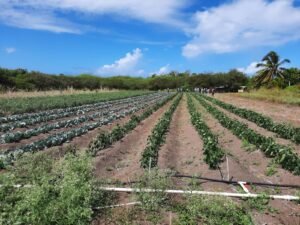Agricultural Education in Ghana. Agriculture remains a fundamental sector for many African countries, including Ghana. With approximately 60% of the Ghanaian population engaged in agriculture, mostly on a subsistence level, it is evident that agriculture is pivotal to Ghana’s socio-economic development. Therefore, there is a pressing need for agricultural education to promote better farming practices, improve yields, and elevate the economic status of the farming community. This article delves into the history, current state, challenges, and future of agricultural education in Ghana.
Agricultural Education in Ghana
History of Agricultural Education in Ghana
Historically, agriculture in Ghana revolved around traditional practices handed down through generations. However, with colonization and the advent of formal education, agricultural education became structured.
- Colonial Era: During the colonial period, agricultural education was introduced to train locals in better farming techniques to increase the production of cash crops like cocoa, which was significant to the colonial economy. There were establishments of agricultural training schools and institutes.
- Post-Independence Era: After gaining independence in 1957, Ghana’s first president, Kwame Nkrumah, emphasized the importance of education. Several agricultural schools and universities, such as the Kwame Nkrumah University of Science and Technology (KNUST), expanded their agricultural faculties to offer more specialized courses.

Current State of Agricultural Education
Presently, agricultural education in Ghana can be categorized into:
- Basic and Secondary Education: Ghana’s basic education curriculum integrates agricultural science, emphasizing both theoretical and practical knowledge. At the secondary level, particularly in Senior High Schools, students can specialize in agricultural science, which offers deeper insights into topics like crop and animal husbandry, agribusiness, and agricultural biotechnology.
- Tertiary Education: Universities like KNUST, University of Ghana, and University of Cape Coast offer undergraduate, postgraduate, and doctoral programs in agriculture. Courses range from agribusiness, soil science, agricultural biotechnology, to crop science.
- Vocational and Training Institutes: These institutions offer practical training. The Agricultural Colleges at Kwadaso, Ejura, Damongo, and Ohawu are pivotal in producing agricultural extension agents and middle-level manpower for the sector.
- Non-Formal Education: Various NGOs and governmental programs provide periodic training for farmers, offering them new techniques, technologies, and best practices.

Challenges Facing Agricultural Education
- Underfunding: Insufficient funding is a significant challenge. This has resulted in outdated facilities, inadequate research, and a lack of modern equipment for practical training.
- Curriculum Mismatch: Often, the agricultural education curriculum doesn’t align with the actual needs of the modern agricultural sector in Ghana.
- Low Interest: Despite agriculture’s significance in Ghana’s economy, many youths perceive farming as a low-income occupation meant for the rural elderly. This perception hinders the interest in agricultural studies.
- Limited Research and Extension Services: Effective agricultural education requires a strong linkage between research, education, and extension services. This connection is somewhat weak in Ghana.
- Climate Change: Changes in rainfall patterns and increasing temperatures are affecting traditional farming practices, necessitating a rapid update in educational content which can sometimes lag.
Future of Agricultural Education in Ghana
- Embracing Technology: There’s a global shift towards smart farming. Introducing students to technologies like drones, AI, and IoT in agriculture can modernize the sector.
- Research and Development: Investment in agricultural research can lead to better crop varieties, improved farming methods, and enhanced post-harvest technologies. This will not only benefit Ghanaian farmers but also the entire West African region.
- Strengthening Extension Services: A robust agricultural extension system can bridge the gap between research institutions and the farming community. This ensures that new techniques and findings directly benefit the farmers.
- Public-Private Partnerships: Collaboration between the government, educational institutions, and the private sector can usher in modern facilities, research funding, and internship opportunities for students.
- Rethinking Curriculum: Aligning the curriculum with the current needs of the agricultural sector can produce graduates ready to tackle modern-day challenges.

Conclusion
Agricultural education in Ghana, with its rich history and contemporary significance, requires consistent revaluation and support. For Ghana to achieve food security, sustainability, and economic prosperity, there is a need to invest in, restructure, and modernize agricultural education. By addressing current challenges and capitalizing on future opportunities, Ghana can position itself as a beacon for agricultural excellence in the region.
